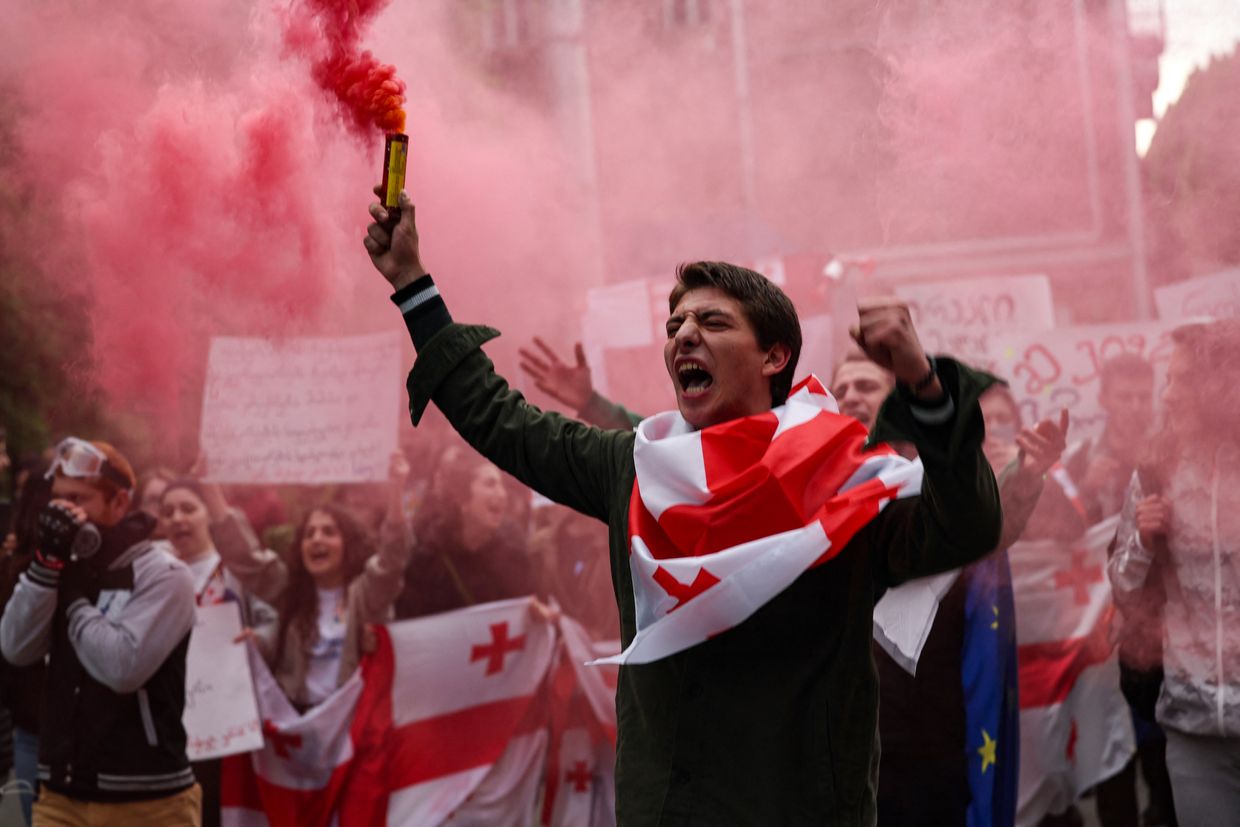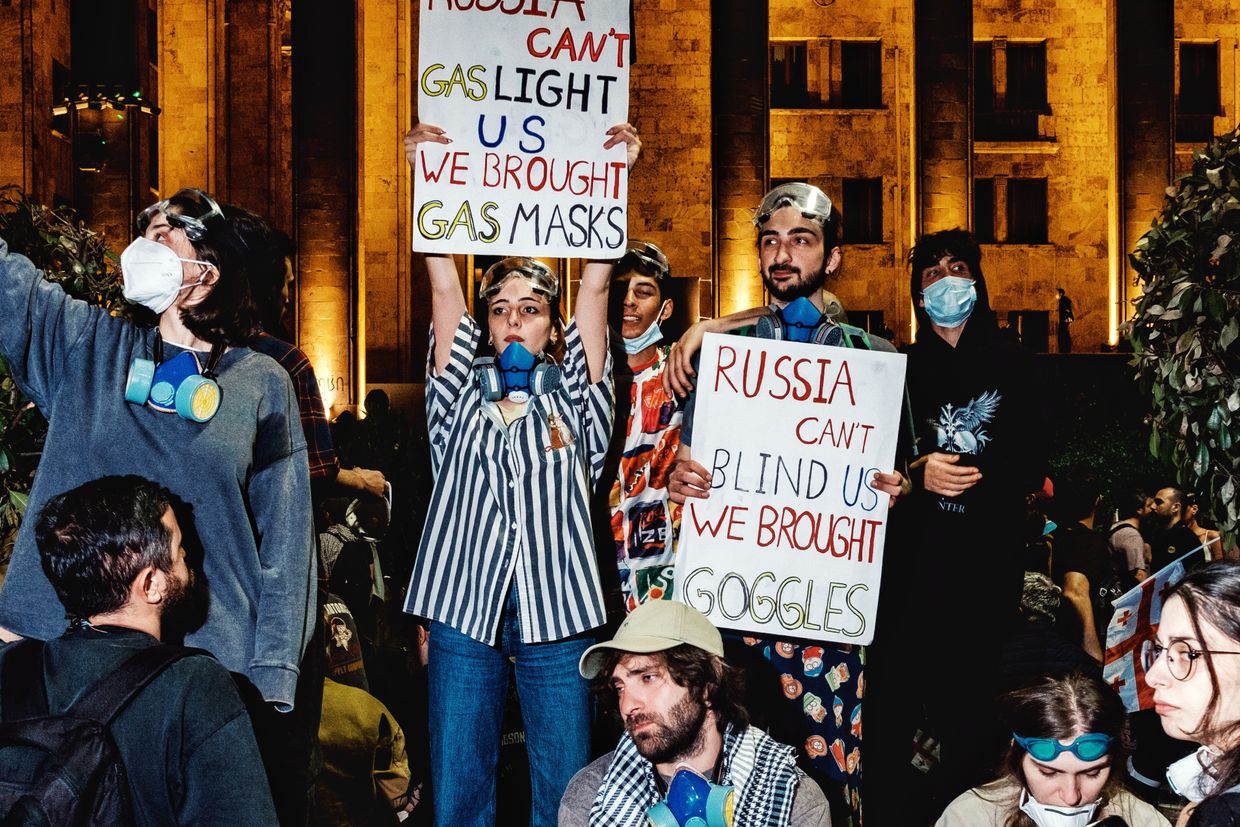Georgia's ruling party to seek constitutional ban of chief opposition party.
Support independent journalism in Ukraine. Join us in this fight.
Become a member Support us just onceThe ruling Georgian Dream party said on Aug.
20 that it will try to declare its largest opposition party, the United National Movement (UNM), as unconstitutional if it secures a parliamentary majority in the upcoming elections. Georgian Dream, which has been power since 2012, has long demonized UNM and its former leader and ex-president, Mikheil Saakashvili. Saakashvili, who left the country after Georgian Dream came to power and briefly served as the governor of Ukraine's Odesa Oblast, has been in prison in Georgia since 2021 on charges he maintains are politically motivated.
In an appeal posted on Facebook, Georgian Dream emphasized that it needs to obtain a "constitutional majority in order to qualitatively improve the political system, which cannot be achieved without removing the collective 'UNM' from politics." The phrase, "collective UNM," has been regularly used by Georgian Dream officials as an attempt to lump its political opposition under the banner of UNM, which still has a controversial legacy in the country. "Upon obtaining a constitutional majority, we will initiate a legal process that will result in UNM and all its satellite or successor parties being declared unconstitutional," the statement continued.
Russia's shadow over Georgia and Kyrgyzstan's foreign agent laws
The foreign agent laws adopted this year by Georgia and Kyrgyzstan are not fueling mounting authoritarianism and crony rule. They are the result of it. Critics of the countries' regimes derisively allude to the legislation cracking down on nongovernmental organizations that receive funds from abroa...

Georgian Dream's statement also included three other reasons why it says it needs a constitutional majority -- to pass anti-LGBTQ legislation, "to restore the territorial integrity of Georgia...in a peaceful way," and "for the protection of Georgia's identity and national values."
The statement was immediately criticized by Georgia's opposition, with some saying that it was illustrative of Georgian Dream's increasingly open authoritarian tendencies and intent to create a one-party state. Georgian Dream previously passed an anti-LGBTQ bill in its first reading in June, but it must go through two more readings and other legislative steps before it becomes law. Two regions of Georgia -- Abkhazia and South Ossetia -- are under de-facto control of Russia.
Georgian Dream has hinted before about the possibility of returning the territories to its control, but has yet explained how it plans to do so. Some believe that the plans may include concessions to Russia. Georgia's relations with the West have deteriorated in recent months, in large part due to the passage of the controversial foreign agents law and associated crackdown on the historic street protests that followed.
Parliamentary elections, widely thought to be an existential moment for the country, are scheduled to be held in October. Recent independent polling found that while Georgian Dream was the most popular party, chosen by 32% of respondents, the level of support would be short of a constitutional majority and would necessitate the creation of a coalition government.
Explainer: What's behind ongoing protests in Georgia? For the past few weeks, thousands of protesters have gathered every night in front of the Georgian parliament in opposition to the controversial foreign agents law that the ruling Georgian Dream party is attempting to pass.
The final vote is set to take place on May 14.
The law would
